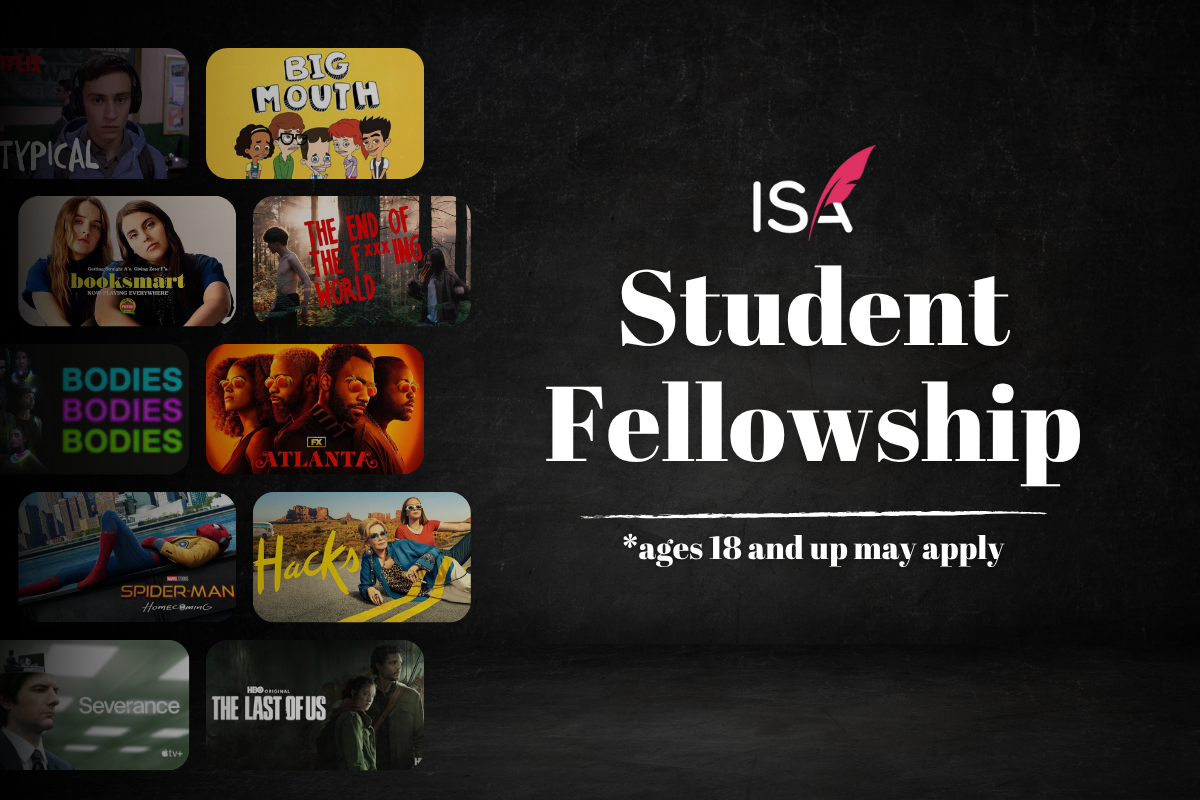How I Hijacked Hollywood: Part Two
Screenwriter Zack Ford is back with part two of his Hollywood saga; from moving to Beverly Hills, production on WATCHER, and the film’s premiere at the Sundance Film Festival 2022, to becoming a Hollywood producer.
This dispatch from the trenches of Tinseltown begins in an unlikely place: when I wrote the original How I Hijacked Hollywood article – published exactly one year ago today, which detailed the unconventional way I sold my spec script WATCHER – I was living alone in an attic apartment with a sloped ceiling too low for my head, in Skaneateles, NY – running for mayor of my hometown. Skaneateles Lake, which used to be the second cleanest lake in the United States, was now polluted. I wanted to save it.
My opponent was Mary Sennett, who in 2019 as a Village Trustee had sent the local sheriff to arrest me. My crimes were that I’d spoken out against the overt racism of Sennett’s elected peers, and that I’d petitioned Village Hall to fly the rainbow flag during Pride Month. I’m not kidding – the ACLU defended me, their lawyers telling Sennett that her attempt to arrest a peaceful critic was an “affront to the First Amendment and the core values of our democracy”. The cops were called off, but Sennett won the election in a landslide.
You have to see the humor: as I was receiving death threats, and as residents were bursting with explosive diarrhea from the toxic algae in the lake, Oprah Magazine listed Skaneateles as the #1 most under-rated place to visit in the country – that’s America.
Anyway, this all-is-lost moment was followed by a new act break: on March 16, 2021, the exact same day I lost the election, my screenplay WATCHER completed its first day of principal photography in Bucharest, Romania. And though it was glorious to be the most eligible bachelor in upstate New York, it was time to give Los Angeles a shot.
I subletted my attic apartment, which resembled Dan Torrance’s dreary digs in the film Dr. Sleep – and signed a one-year lease on a 1926 Spanish-style home in Beverly Hills. I moved in with my best friend Ben Pitts, who had been a talent manager for years in New York and was now to become my Hollywood manager.
We were worried about money – we’d rented a palace with a hot tub, a heated pool, a clawfoot bathtub, a Sub-Zero fridge, a stone birdbath adorned with cherubs, and ornately carved wooden columns in the rooms – but we’d decided to unflinchingly face Hollywood’s culture of status and image vis-á-vis. We considered it a business move, pun intended.
For all our puffed plumage, I was relieved when the dice rolled in our favor. I signed a deal to rewrite a horror film about teens on social media – horrifying, indeed – less than a week after my plane touched down at LAX. We were now flush with cash and ready to take on La-La Land.
But as guerilla wars were waged through the halls of our bungalow with Nerf guns – one round traveling at 110 feet per second hitting me in the cornea, causing a flickering phosphene that made it difficult to write, even as I write this – as we threw pool parties replete with an inflatable Funboy Disco Dome almost too massive to fit in the pool and naked, splashing revelers who in their tableaus of hedonism resembled Hogarth’s hortatory engravings and champagne corks bouncing off the ceiling arches at even greater velocities than the Nerf rounds – what I thought would be a glittering Hollywood dream rotted in the unrelenting sunlight to become something of a waking nightmare. The tectonic plates of greed, fear, power, and misogyny that had been baked into the architecture of the industry by so many power players in decades past were still steaming and rupturing like the very geological fault lines under the town itself. I’d had only a mere whiff of success – WATCHER was still in editing, and no one had even seen it yet – but now there were manipulators, liars, full-blown narcissists, ketamine hounds, coked-up lunatics, and straight-up vampires, all come out of the desert and through my front door to the watering hole of my swimming pool where they bobbed and grinned like disingenuous crocodiles.
Everything out here was dangerous and uncertain. A producer on the aforementioned social media horror project called and threatened me: he said he’d smear my name around Hollywood, claiming I was a difficult writer to work with, if I didn’t sign on for yet another rewrite – for less money – although the director had loved my first pass. I wondered if things would work out – if moving to Los Angeles was a big mistake – and I began to sweat so much at night that I bought a waterproof mattress cover from Target. I felt the cosmic architecture around me creaking as now I was almost able to reach my dreams, but I wondered if I actually would. If WATCHER wasn’t a hit, it would compound my last disastrous effort – SCAR 3D – and I’d be ruined.
To cope with it all, I did the only thing that made sense – I locked out the crocodiles, I brewed a cup of coffee, and I typed FADE IN: on a new project.
Ben and I converted a spare bedroom into a war room. We put a jumbo calendar from Staples and pushpin boards on the walls, and we had a full wall of mirrored closet doors on which to scrawl our battle plans with dry-erase markers.
As if the fickle gods of fate abided our fortitude, I suddenly learned WATCHER had become an official selection at the Sundance Film Festival. It was a complete surprise, totally out of the blue – a producer on the film sent me a private email, but I had to keep the news a secret for two weeks until it was officially announced. For over ten years I’d piled up rejections thick as a Manhattan phone book, dreaming of turning the tables – and now, I was. And Sundance was happening – I pitied the filmmakers of Sundance 2021, who’d had an anticlimactic virtual festival because of the pandemic. I bought an official Sundance Film Festival poster and a frame from Blick and put it on the wall of the office.
Ben and I concocted a plan to be the biggest story at Sundance: we spent over $600 on 60 custom frisbees – official, 175g discs – emblazoned with the words “ULTIMATE! The Movie” – we would throw, flick, or hammer these advertising materials at producers and celebrities on the streets of Park City to tout our new sports comedy. We hadn’t written the script yet – so we did, under a ticking clock, writing in coffee-and-sativa fueled marathon sessions, sometimes completing 10 or 20 pages in a day. Meanwhile, we rented a humongous ski-lodge on Airbnb, and fifteen friends bought plane tickets to Utah. My parents bought plane tickets, too – I’d gone to my first film festival back in 1996 when I was 14 and my mom had been a screenplay finalist in the Austin Heart of Film Festival. Everything had a wholesome feeling of coming full circle. But a few hours after I typed FADE OUT, Sundance was cancelled.
There would only be virtual screenings.
I mitigated my anxiety with 26+2 hot yoga – Ben with indoor rock climbing – and we pivoted. We stuck personalized labels on our 60 frisbees and stuffed them into 60 Priority Mail envelopes and sent them to 60 producers and agents. I dug up the 138-page call sheet I’d kept since my very first Barbaric days a decade ago, and we sent out hundreds of new calls and emails – carving inroads, making introductions, and promoting ourselves and WATCHER.
Our bank accounts dwindled – we were still in contract negotiations for a project I’d pitched eight months prior, and a check with lots of zeroes was somewhere in the fog. But I took solace that a Tarot card reader in Key West had told me the big money was coming. Even living the dream, it all seemed balanced on a wing and a prayer.
January 21st arrived – the day of the Sundance premiere of WATCHER. Hours before the screening, I sat in a chair in my room and emotionlessly looked out at dead leaves floating on the surface of the cold, neglected swimming pool. My girlfriend shaved my stubbly head. I bet I kind of looked like I’d had a lobotomy. The intersections of work and play and love and business and seismic changes had tangled up some difficult emotional knots. My brain, my heart, and my gut felt like space garbage hurtling in uneven orbits around my soul. I felt out of control, but I didn’t understand why I felt anything besides utter all-consuming joy. Ben felt it, too – sometimes it was difficult to live with your best friend who was also your manager, or from his view of me, perhaps an intractable client – and we joked about writing an autobiographical TV show called Just Managing.
Couches were moved into the living room, a 4K Apple TV was purchased, and at 8 p.m. PST, the premiere of WATCHER was streamed through the Sundance app for eleven friends and a miniature Australian Shepherd named Doot. I was barefoot, but I wore a suit. There was a rose in my lapel. Director Chloe Okuno and cinematographer Benjamin Kirk Nielsen had created a cinematic gem. I first learned that Okuno shared a co-writing credit with me during the opening credits – sometimes screenwriters are left out of the loop – but that’s Hollywood. I cracked jokes throughout the movie, such as, “That jar of pickles was sweet, not dill, in my version!”, to uproarious laughter. Though we weren’t at Sundance, we’d pulled off a perfect screening – in no small part because Okuno had arrived as a true auteur and pulled off a pitch-perfect film. I was again surprised by the end credits: my name was at the very top, on its own card as a co-producer. I’d forgotten I’d negotiated that credit during one of the several option agreements I’d signed years earlier. I paced around the house guffawing that I was now a Hollywood producer. Then I stopped cold – because it hit me: I was a Hollywood producer.
Ben and I stood amidst the litter of Solo cups, plastic flutes, and empty champagne bottles as we repeatedly refreshed our phones – waiting for a first review. Then around midnight, one finally popped up – from Variety, and it was positive, stating officially that WATCHER was “pretty damn good”.
You might not guess what happened next: I had a something of a nervous breakdown. I’m not kidding. I felt nauseous for three days. At one point I got out of bed at 3 a.m. and stuck a finger down my throat to try to release a catharsis that seemed lodged in my gut like a clay brick. My raison d’être for the last ten years had been to turn the tables on those who’d rejected my work, to become a Hollywood success – and now that I’d succeeded, I’d also subverted myself. For all those years I’d drawn my strength to go on writing against Hollywood’s staggering odds by defining myself as an indomitable underdog – now, bizarrely, I was a top dog. I couldn’t reconcile myself – somehow in the midst of success, I had a crisis of confidence.
I went to Larchmont to see my girlfriend, and in the ten minutes it took to drive there I convinced myself she was going to dump me. That’s the scene my reeling mind wrote, given the parameters: she’d suggested a café that was only open for another hour, she was very late to get there, and her outfit looked too good – but it wasn’t true. It was only my starving underdog snarling for scraps.
Over vegan banana ice cream, she asked me if I really knew the true terror women experienced in society, even though I’d written a movie about it. I grappled with it. WATCHER was on point, it had an important message, and I was proud that I’d pushed the genre towards what it could be at its best: a societal mirror. But no – I’d never had to look over my shoulder or draw my curtains if I didn’t want to – I’d never feel the terror of men in the marrow of my bones like they did. I knew, more than ever before, it was my job to make the discomfort my home – to negotiate those spaces between what Hollywood would pay me for, what stories were mine to tell, and how I could listen even more to those stories that weren’t.
The good reviews kept rolling in. Ten days later, six out of seven Top Critics on Rotten Tomatoes had given WATCHER positive reviews, as did dozens of other critics. My RT profile now boasted an 87% over SCAR 3D’s 0%. I’d redeemed myself. Now all I had to do was do it again, and do it even better.
On January 30th, as I ate brunch at Sage Bistro, my phone rang but I missed the call. My girlfriend’s phone began ringing. It was Ben – I didn’t understand what could be so urgent on a lazy Sunday. I feared something had happened to Doot. But what had happened was: WATCHER had sold to IFC Films. The next day, Focus Features would buy the international rights. News would soon follow that WATCHER would screen in person, not virtually, as a Midnight Movie in the SXSW Festival in Austin – maybe that wholesome circle would close, after all. I went over to Echo Park Lake and watched people throw bread at the ducks and others peddle paddleboats shaped like swans. For the first time in a long time, I didn’t think about anything at all.
So, if you wanted to know, I guess that’s how to make it in Hollywood.







